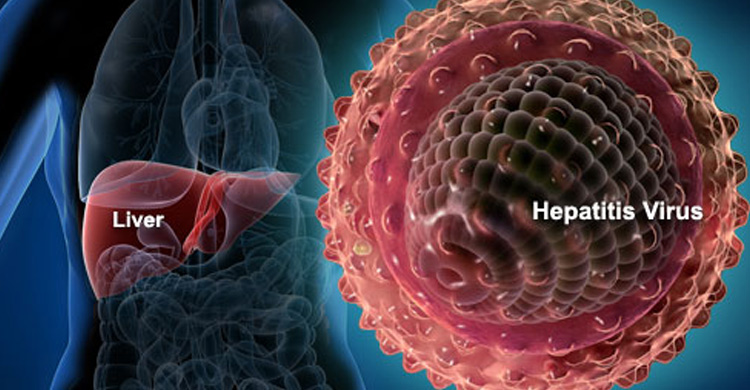
Hepatitis is commonly referred to as
inflammation of liver. Most common types of infectious
hepatitis are Hepatitis A (HAV), Hepatitis B (HBV) and
Hepatitis C (HCV). HAV is a food-borne illness and is usually
self limiting.
Hepatitis B (HBV) and Hepatitis C (HCV) are a type of viral
hepatitis transmitted by infected blood and body fluids
causing chronic liver disease. In certain endemic areas,
Hepatitis B can be transmitted by food. Patients at risk of
acquiring the infection include injection drug abusers,
household contacts of infected patients, hemodialysis
patients, travelers to endemic areas and prison inmates.
Unvaccinated individuals are also at risk of acquiring
infection in health care settings after exposure to an
infected needle or body fluids.
Most common signs and
symptoms include but are not limited to fatigue, nausea,
abdominal pain, loss of appetite, yellow discoloration of eyes
and skin.
If untreated, chronic
infective hepatitis B and C can lead to cirrhosis of liver,
end stage liver disease and/or liver cancer. Patients with
untreated chronic HBV and HCV infections are advised to
undergo periodic screening of hepatocellular carcinoma.
Hepatitis B infection should be monitored periodically with
blood work and treatment should be started as indicated.
Hepatitis C infection treatment and cure has come a long
way. Patients can be cured with treatment in 8-12 weeks.
Treatment regimen and duration is dependent on patient's
genotype and certain other host factors.
Our specialists at
FLIDS conduct a comprehensive evaluation including counseling,
blood work and imaging that is required to initiate treatment
process.
Our staff diligently works with insurance
companies for approvals to ensure quality care in a timely
manner.
US Preventive Task Force(USPTF) recommends testing for Hepatitis C if you:
- are a Baby Boomer, born from 1945 - 1965
- received a blood transfusion or organ transplant before July 1992
- are a current or former injection drug user
- you are on long term hemodialysis
- you are infected with HIV
For more information visit https://www.cdc.gov/hepatitis/index.htm
